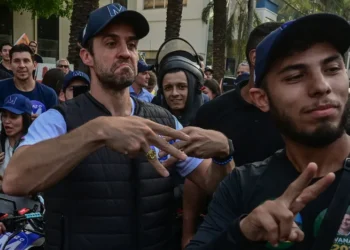The Brazilian Minister for Indigenous Peoples, Sonia Guajajara, has announced that she plans to regularize six more Indigenous lands by the end of April, the month when it is celebrated Indigenous Peoples' Day.
The statement was made on Wednesday (10) to the press during an event called the Skoll World Forum, which brings together social entrepreneurs in Oxford, England.
"We still have a lot of territories to regularize. We presented 14 areas at the beginning of the government, ready to be ratified. We are working so that, by the end of April, we can meet this goal," said Sonia Guajajara.
The resumption of demarcations, paralyzed during the Jair Bolsonaro (Liberal Party) government, is one of the main demands of the Indigenous movement, which supported Lula (Workers’ Party, also known as PT) in the elections.
The delay has generated pressure from Indigenous organizations on the Workers' Party administration. The Articulation of Indigenous Peoples of Brazil (Apib, in Portuguese) has promised to increase its demands on the government in 2024.
Government fulfills promised number of Indigenous lands regularized
With the regularization of six new Indigenous lands, the number of Indigenous areas ratified during the Lula administration will rise to 14, the same number planned for regularization at the start of the government.
Together, these 14 territories surpass 8,400 km² – more than five times the size of the city of São Paulo.
According to the Socio-Environmental Institute (ISA, in Portuguese), around 30% of Brazil's 676 Indigenous lands have not yet been ratified and are at early stages in the demarcation process.
Approval by presidential decree is the last step to regularize Indigenous lands in Brazil.
Once the land has been ratified, the Indigenous people will be able to make full and exclusive use of the natural resources of the area, as provided for in Brazil’s Constitution.
In April 2023, President Lula ratified the following Indigenous lands: Arara do Rio Amônia (Acre state), of the Arara people; Kariri-Xocó (Alagoas state), of the Kariri-Xocó people; Rio dos Índios (Rio Grande do Sul state), of the Kaingang people; Tremembé da Barra do Mundaú (Ceará state), of the Tremembé people; Avá-Canoeiro (Goiás state), of the Avá-Canoeiro people; and Uneiuxi (Amazonas state) of the Maku Nadëb people.
In September, a new round of ratifications will regularize other Indigenous lands: Acapuri de Cima (Amazonas state) and Rio Gregório (Acre state).
Indigenous movements demand ratifications
In February, Apib’s coordinator, Kleber Karipuna, said to Brasil de Fato that the Indigenous movement intends to intensify demands on the Lula government, even though it supported Lula’s presidential candidacy in the 2022 election.
“Former Minister Flávio Dino left [the Ministry of Justice] without approving any Declaratory Ordinance for Indigenous Land, even though Funai [National Foundation for Indigenous Peoples] and the Ministry of Indigenous Peoples sent more than 30 cases to the Ministry of Justice," Kleber Karipuna complained.
One of the reasons for Apib 's dissatisfaction was the delay in ratifying Indigenous lands that had already been cleared of legal disputes.
"We support this government [Lula], but we are fully aware that it is government based on alliances with many political parties and is not 100% aligned with our demands. Some ministers oppose certain Indigenous agendas. We will continue dialoging, but the scenario will be one of greater demands," said the leader of the country's largest Indigenous organization.
After demarcation
Ratification is the final stage of the long demarcation process, which usually lasts decades. For Indigenous peoples, the presidential signature means full rights over the land: permanent possession and exclusive use of natural resources, as well as facilitating access to public policies and making it possible to end violent disputes by expelling invaders.
In September, Toya Manchineri, general coordinator of the Coordination of Indigenous Organizations of the Brazilian Amazon (Coiab, in Portuguese), told Brasil de Fato that he considers land demarcations a victory. Once they are demarcated, the challenge is to increase inspections against invaders and environmental criminals.
"Every Indigenous person who lives in a territory not demarcated yet experiences insecurity: conflicts in the region and uncertainty about the guarantee of that space for raising children and continuing the good life of each community. Now it is also necessary to guarantee the protection and surveillance of these lands, to prevent invasions and environmental crimes," he said.



















